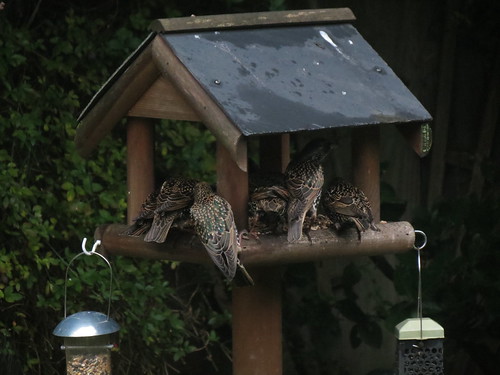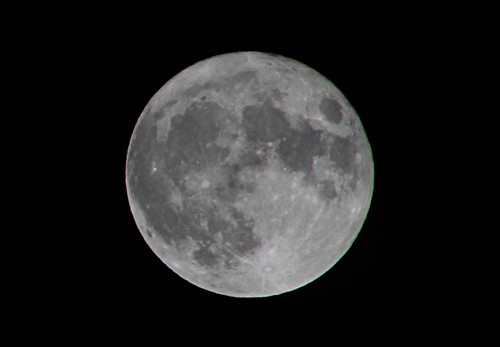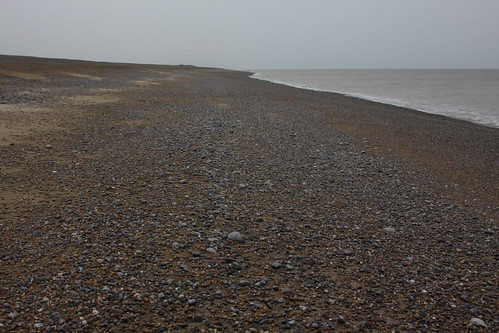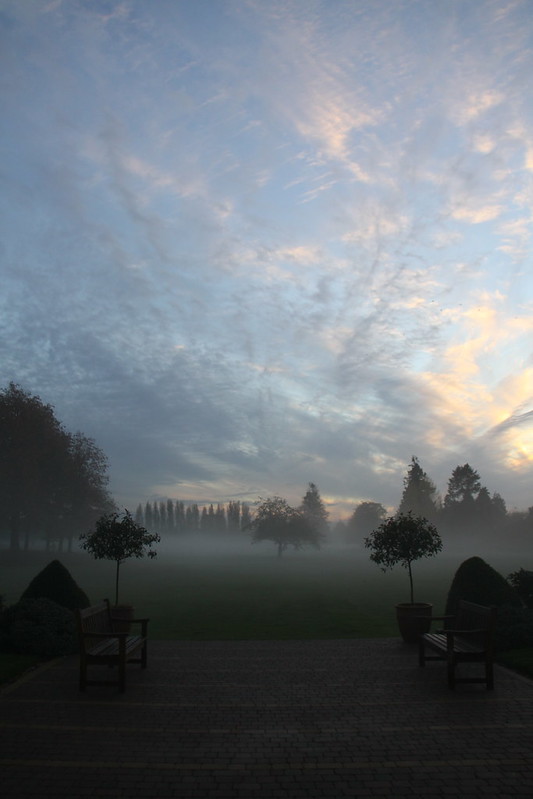I mentioned a few days ago that I've been ordering upgrades for my laptop. Installing 16 Gb of RAM in it hadn't made as much difference as I expected, so I'd decided to order a hybrid drive for it and commented "Let's see what difference that makes."
Last night I cloned the old drive and this morning I swapped it for the new one. So, how much difference has it made?
Whoa. Nelly.
The time taken from pressing the power button for the machine to boot, start Firefox, and display my home page has gone from somewhere in the order of eleven minutes to exactly sixty seconds. It's given the machine a whole new lease of life.
Oh, and the backlit keyboard looks the business.
The back garden looks a lot better this afternoon than it did just a couple of weeks ago. I've pruned the buddleia in the back garden, and I've just had the hedge trimmed to a manageable size. As a result there's much more light coming in through the conservatory and from where I'm sitting I can see blue sky right now; it's a lovely day.
It's amazing just how much the hedge has grown since I bought this place 21 years ago. I really don't like Leylandii; they grow too fast and too big and the foliage - a sharp, bristling and unattractive dull green - has been encroaching on the rest of the garden a lttle bit more with each passing year. It's only when some of it's removed that I realise how much it's taken of the limited space I have. Photographs of the garden taken a couple of decades ago show a space that seems more open, larger. The Universe might be expanding but it feels like we had more room back then than we do now.
I think next year I'll be upgrading the house, rather than my computers. This place has been somewhat neglected of late and it's time to show it some love.
There's a listing at TV Tropes for a genre of fiction known as the Direct Line to the Author. It describes works where the author tells us, "I'm recounting these events exactly as they were told to me by the people to whom they happened." In such a work, what is written is presented to the reader as being the author's record of a true occurrence, as dictated to him by one or more protagonists or close witnesses. On close inspection, the approach throws up plenty of problems, but it remains a popular way of spicing up the plot. Sir Arthur Conan Doyle was a master of the technique and presented most of his fiction in this way, ranging from the earnest reports of the Adventures of Sherlock Holmes as conveyed by Doctor John Watson in the Strand Magazine, to the breathless accounts of Professor Challenger's exploits, ostensibly written for readers of the Daily Gazette by ace reporter Edward Malone. Presenting fiction as fact was a well-established literary device as long ago as AD 1605, when Miguel Cervantes wrote Don Quixote; he lampoons the technique mercilessly by first setting up the conceit (the emphases are mine):
"This, however, is of but little importance to our tale; it will be enough not to stray a hair's breadth from the truth in the telling of it."
"For my sole object has been to arouse men's contempt for all fabulous and absurd stories of knight errantry, whose credit this tale of my genuine Don Quixote has already shaken, and which will, without a doubt, soon tumble to the ground. Farewell."
...and then having the central character come across it in works by other writers and driving himself mad trying to understand how works that he has been told are true could possibly be so:
"He was not at all easy about the wounds which Don Bellanis gave and took, because it seemed to him that, great as were the surgeons who had cured him, he must have had his face and body covered all over with scars."
C. S. Lewis framed his tales of Narnia as true accounts that were told to him by Lucy, one of the children whose adventures he recorded. He eventually works himself into a corner doing this, because Lucy's ultimate fate is included in the tale - leaving him without a means to have heard the story in the first place. Lewis's great friend Tolkien intended that his tales of Middle Earth should be presented as legendary tales from history, and makes this explicit in The Book of Lost Tales, where the stories are framed as history related to an Englishman named Ælfwine, rather than fiction. Edgar Rice Burroughs and L. Frank Baum presented their most famous works as true histories, rather than fabrications.
I'm sure you've seen at least one film, too, where the events are presented as a true account of "the facts" even though they are quite clearly nothing of the sort. These days, found footage films like the Blair Witch Project or Cloverfield are so prevalent that the genre even has its own Wikipedia page. Earl Mac Rauch, the writer of my favourite film Buckaroo Banzai, presents his work as a "docudrama" and infers that the good Doctor is a real person and that the Banzai Institue's activities encompass our lives from day to day. The Banzai Institute's web page is presented as if the Institute were real, complete with an advertisement at the bottom of the landing page featuring a fund management program run by one of the film's main characters. We are invited to believe that everything we saw on screen really happened, good triumphed over evil, and that the Hong Kong Cavaliers may well be playing a gig near you in the not-too-distant fuiture. If only that were true.
If only that were true.
That's the thing, isn't it? Stories like The Adventures of Buckaroo Banzai allow us a momentary fantasy that things aren't quite so bad as we imagine and that, actually, the world out there is considerably cooler than we thought. If such things do exist, perhaps our fantasies about things turning out okay and the world suddenly becoming aligned with our personal beliefs and value systems might also happen, even if they do so as a result of disaster or even apocalypse?
As a result of all this I've been following the current furore over fake news with considerable interest. The media have decided to demonise Facebook and have been laying the blame, somewhat unfairly, at Mark Zuckerberg's door. Facebook is just one way in which untruth is spread and it's fairly safe to say that there are many other ways in which news is at best manipulated and at worst entirely contrived. The irony of the New York Times - whose political bias is concisely illustrated by this Twitter thread from Jamison Foser - tutting sternly about the decline in "real" journalism is not lost on me. Such posturing would be funny if, in furthering its owner Rupert Murdoch's agenda, the NYT hadn't had such a deleterious effect on global politics.
The mainstream media have reacted to fake news - whether it be from The Onion, the Waterford Whisperer, or any of a hundred wannabe copies - as if it was something new. But the Onion has been doing what it does, originally in print and now online since 1988. These days it's essential to treat anything that sounds too good to be true as exactly that, and you should never spread a story further without first checking with the invaluable website Snopes to make sure you're not being gulled. If the story confirms your existing prejudices and world-view, you should be doubly suspicious. Ask yourself a simple question: "Who stands to gain if I act on the premise that this story is true?"
As a Fortean, I'm used to fake news. Fake news has been happening in the press for well over a century. The American Mystery Airship Scare of the 1890s was intended, then as now, to boost newspaper circulation. While some people may have genuinely seen lights in the sky, the tales of foreign aeronauts and crashing dirigibles never actually happened. Many UFO stories that were favourites of mine when I was young have now been debunked. The Surgeon's Photo of the Loch Ness monster, Carlos Castaneda's Mexican guru Don Juan Matus, the Gimlin-Patterson Bigfoot film and many other entertaining stories have turned out to be hoaxes. Some revelations have been laughably prosaic: the Tibetan mystic T. Lobsang Rampa turned out to be a plumber from Plympton in Devon.
The latest fake story craze appears to have fixated on parallel universes, and I've seen a couple of people linking to this Buzzfeed list of 9 strange stories that play around with the Many Worlds Interpretation of quantum mechanics. For a start, it's on Buzzfeed, so (like the New York Times) it's not going to meet any criteria for responsible journalism or unbiased reporting.
The first of the 9 stories is lifted from the Week In Weird website, so again I'm not exactly expecting a thorough investigation of the facts. It revolves around a traveller who allegedly arrived at Tokyo's Haneda Airport in 1954; the website shows us photographs of the airport at that time, which lends the story an air of authenticity that is far from deserved. We are told that this traveller spoke French, but that he had a passport from somewhere called Taured that can't be found on any map, and a chequebook from a bank that didn't exist. Customs officers detained him overnight in a room on the 15th floor of a hotel from which - so the story goes - he mysteriously vanished before breakfast the next day.
The problem is that the story - intriguing as it is - can be traced back to a single-sentence mention in Colin Wilson and John Grant's book The Directory of Possibilities published in 1981, and that book's "further reading" list references a work by Paul Begg called "Out of Thin Air: People Who Appeared From Nowhere" which may or may not have ever been published (it's listed as "forthcoming"). Beyond that, who knows? You'd expect something as sensational as this to have its history thoroughly researched by now, given that it allegedly happened in 1954. But there seems to be no trail to follow further back in time than 1981. Almost, in fact, as if the story itself didn't exist until then...
I am no longer surprised to find myself suspecting that everything else in the story as reported on Buzzfeed is, to be blunt, completely fabricated. All the details about chequebooks and disappearances from hotel rooms appear to have been made up as a way to make the story a better read. The other stories on that list should be viewed with the same, profoundly suspicious frame of mind; a quick listen to some of the songs allegedly written by The Beatles in a Universe where they didn't split up convinces me of nothing except the ineptitude of whoever it was who thought that they could record a passable imitation of the Fab Four's music by adding some Wings samples and snippets of George Harrison's solo albums. People make stuff up all the time, and on the Internet it's been a fact of life for decades. This seems to be news to several commenters on Reddit threads about the story. The amount of effort that's been expended on making stuff up in some of the examples listed in Buzzfeed or on the pages of Snopes is depressing. If only these folks could devote the same amount of energy and dedication to solving the problems the rest of us are facing back here in reality.
If they did, I'm sure the world would be a better place.
I went to the cinema last night and when I got back to the car afterwards there was ice on its rear window. This morning at 10:30 it was still only 3°C outside, and the local starlings were very happy to find a pile of mealworms on the bird table in my back garden...
All the same, so far this winter the weather has been the mildest that I can remember. There hasn't been a serious frost yet, and last week the temperature outside at midday was in double figures. Over in the States, the temperatures across the country last month were staggering. When you come across stories like this in the news, one can only view the appointment of a climate change denier to the US presidency with a considerable sense of alarm.
I lent one of my colleagues my laptop for a couple of days as his had completely died and he needed to run a training course that involved the use of both a PowerPoint deck and some video. I've had a Dell XPS 15 since 2012 and when I bought it, I went for what was at the time a pretty decent specification: Core i5 processor, 6 Gb of RAM and a 1TB hard disk. I bought it to run Ableton Live, so I knew I would need something with a bit of grunt. But over the last year it's got slower and slower and as a result I've been using it less and less.
When I was setting up the training materials on it last week I realised just how painfully slow it's become since I installed Windows 10 on it (yes, I know...) When I switched it on, the time spent waiting for it to boot felt like an eternity, particularly as I needed to take it to Cardiff that evening. And every time I ran Firefox, I got the "Firefox seems slow... to start" message; this wasn't particularly surprising, as I could pretty much go off and make a cup of tea after clicking on its taskbar icon before my home page would load. I run plugins like AdBlock and NoScript which take their toll on its performance but even so, things obviously needed to be addressed.
So this week I ordered a RAM upgrade from Crucial, and boosted the memory to 16 Gb. It's noticeably less slow than it was, but the machine still doesn't feel like it's running as fast as it did when it was brand new. The hard drive is less than a third full, so it's not struggling for space; I've tweaked the pagefile settings, defragmented the disk and got rid of anything in my startup list that wasn't essential. So I've decided to spend a bit more money on it, and switch to a hybrid disk drive. Let's see what difference that makes.
One thing I regretted not doing when I originally bought the machine was getting Dell's backlit keyboard for it, so this morning I went on Google to see if I could find one online. It took me less than five minutes and cost me less than thirty quid.
Now I'm rather looking forwards to using it again.
I got lucky with the cloud cover last night.
I must admit I get rather annoyed with the ridiculous stories that appear whenever the Earth gets a little bit closer to one of the other bodies in the Solar System. I've grumbled about them on the Blog before. At least The Guardian is being sensible this time.
I've been over in Norfolk, visiting my father on his 84th birthday. The weather there was pretty much as expected...
It suited my mood. Every time I read a story on the web or watch the news I get more and more disheartened, so today I'm going to do other things instead.
Getting that photograph off the camera's memory card was a little bit more involved than usual. The combined USB hub and card reader on my brand-new machine went phut last week when I tried to plug a USB cable into it. I managed to find exactly the same model on the Internet and this morning I swapped out the dead one for its replacement. Much to my surprise, it's working fine.
The River Thames flows through the park where I work, and now that the days are getting cooler, the mist often rises and spreads into the grounds. On Friday evening the light was wonderful and I was glad I happened to have my camera with me...
Unfortunately the subsequent trip home was the worst I've had since I started working there last July. There had been a crash on the M4 which closed all three lanes; traffic was having to get past on the hard shoulder. By the time I heard it announced on the radio, it was too late to turn off and find an alternative route. Instead I spent over two hours stuck in the resulting tailback. I eventually got home at 8:30, which meant I'd missed the village firework display, for which I'd bought tickets. Unusually for me I didn't feel particularly annoyed about this - I just felt tired. Spending six hours of the day behind the wheel will do that to you.
With all the driving I'm doing I'm rapidly becoming a connoisseur of travel reports on British radio, and the chaos on Friday evening really brought home how variable they can be. I didn't hear anything about problems on the M4 from BBC Wiltshire until I'd been sitting in the queue for over an hour, even though the accident happened just before the Swindon East junction; their updates happen so infrequently they're a dead loss. But they're not the worst by a long stretch. That dubious distinction unquestionably goes to BBC Berkshire's travel team, who are perhaps the worst presenters I have ever heard on radio, anywhere - they're unprofessional, intensely annoying, and far more interested in winding each other up than they are in getting travellers to their destination safely. "There's a problem at junction eleven," they'll eventually get round to telling people after they've finished giggling at some puerile joke. Sometimes they even remember to explain whether it's on the Westbound carriagaeway, or the Eastbound one, or on the slip road rather than the motorway itself. Sometimes it even occurs to them to tell us what the cause of the problem is, so we can figure out how long it's likely to remain a problem.
The best reports I get each day are from BBC Radio Oxford, which are usually presented by Al Ryan. And he does a first-rate job of it. Reports are organised by region, and clearly identified. One location that frequently crops up in his reports has such a peculiar name that I resorted to googling it to find out a bit more. I originally misheard it as "Fries White Square," but I discovered that Frideswide Square is named after the patron saint of Oxford, Saint Frithuswith. She was a princess and abbess who lived in the 7th Century AD. The Square has recently been modernised to improve traffic flow, but judging by the frequency with which it crops up on the travel news they haven't ironed all the kinks out quite yet.
And yes, I still despair at the overuse of the word "ongoing" by everyone who reports the traffic news. I wish people would use alternative words every now and then. "Unfinished", "continuing", "current", "in progress", "incomplete", "persisting", "advancing", "protracted", "long-term" and "enduring" all spring to mind. Surely one or more of them is worth considering every so often?




